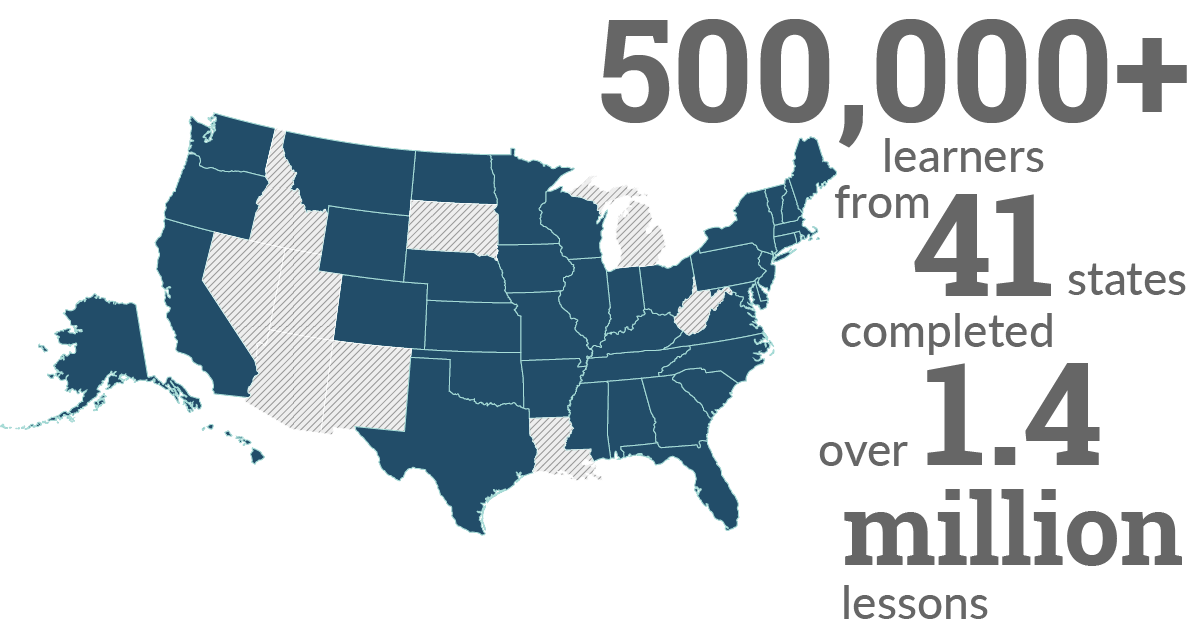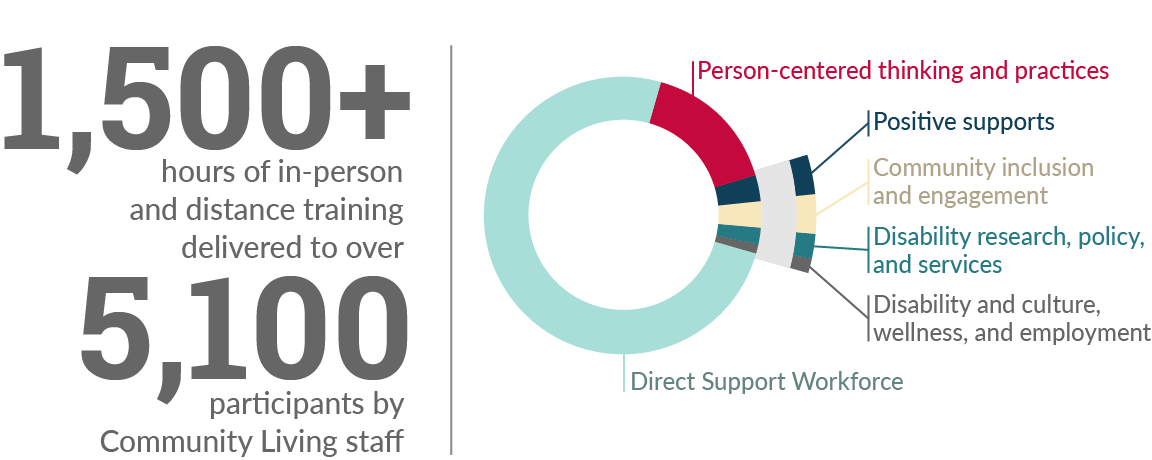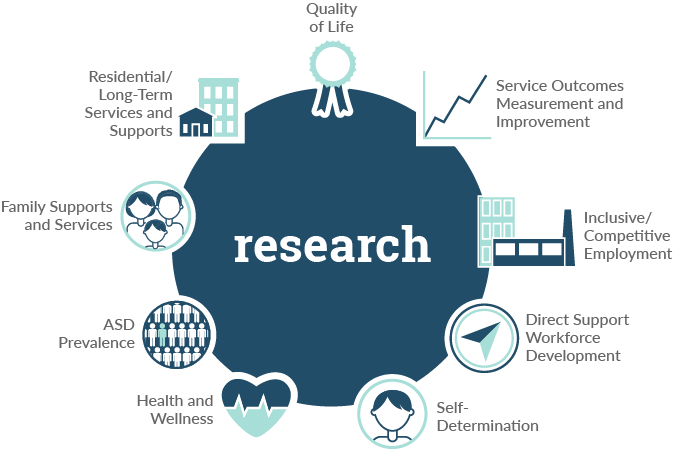Highlights from the Year
RTC-CL Develops Training on Person- and Family-Centered Approaches in Mental Health and Co-Occurring Disorders
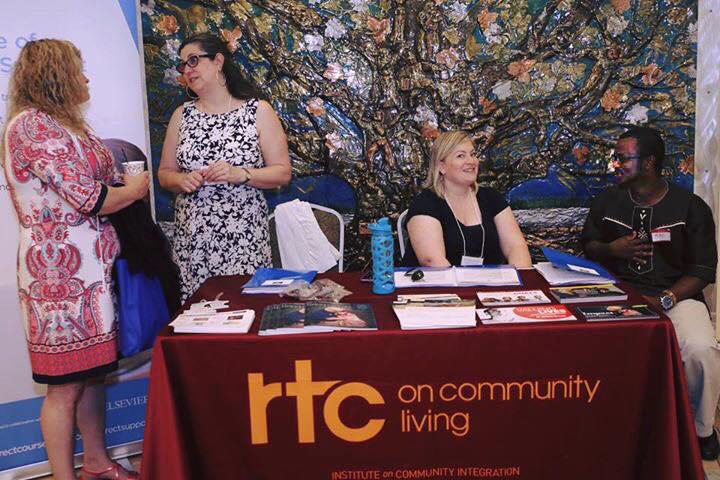
Project manager Susan O'Nell (second from left) talks with an attendee at the African Mental Health Summit in St. Paul, Minnesota, about RTC-CL’s new training project with DHS. Also representing the project at the event were Merrie Haskins, project coordinator, and Macdonald Metzger , RTC-CL’s DirectCourse Quality Coordinator (seated).
A major sea-change in how services and supports are delivered to people with long-term support needs has been occurring nationally and in Minnesota as policy and other changes have emphasized community living and participation, person- and family-centered practices, and self-direction. Despite these improvements, a recent report from the Minnesota Governor’s Task Force on Mental Health finds there are still gaps in services, and fragmentation in service delivery, for individuals experiencing mental health conditions and co-occurring disorders. This means that engaging the system can be difficult and the coordination of supports, services, and treatments does not always make sense to the people receiving them or their families.
To help address these shortcomings, ICI's Research and Training Center on Community Living (RTC-CL) began a two-year, $249,000 contract with the Minnesota Department of Human Services (DHS) in April 2017 called Developing and Engaging Training on Person-Centered and Family-Centered Approaches in Mental Health and Co-occurring Disorders. Under the contract, RTC-CL is designing and implementing a culturally-responsive curriculum for mental health professionals.
Starting from a framework of evidence-based practices in behavioral health (such as motivational interviewing, illness management and recovery, trauma-informed care, and integrated treatment for co-occurring disorders) the components of the curriculum are being co-created with community members. This includes users of services, their families, and advocates, as well as professionals and practitioners. RTC-CL staff and community co-facilitators have a goal to train a minimum of 300 Mental Health-Targeted Case Management (MH-TCM) or similar professionals in 11 regions of the state. "Training professionals in these practices will help realize the vision of person-centered and family-centered support expressed in the Minnesota Olmstead Plan," says principal investigator Amy Hewitt . This project is part of RTC-CL’s longstanding involvement in providing state-of-the-art training for professionals who work with people needing long-term services and supports.
ICI Among Organizations Leading Growth in Minnesota’s Use of Positive Behavior Support
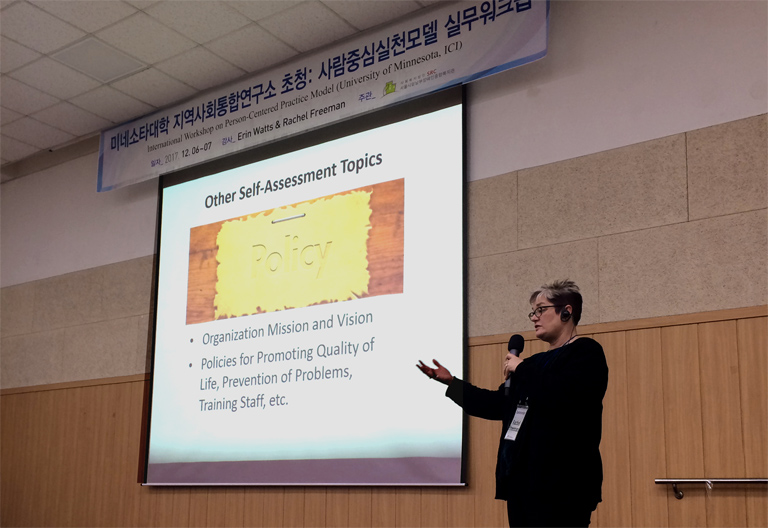
ICI’s Rachel Freeman presented training in organization-wide person-centered practices and positive behavior support in Seoul, South Korea, one of the many places ICI has partnered with others to expand its use.
In June 2016, the Minnesota Positive Behavior Support Network (MN-PBS) was launched. ICI’s Rachel Freeman worked with a small group of other positive behavior support (PBS) leaders from across the state to create the group and submit an application for network recognition from the International Association for Positive Behavior Support (APBS). Submitting the application were the Minnesota Department of Education, Minnesota Department of Human Services, Minnesota State University-Mankato, St. Cloud State University, University of St. Thomas, and ICI. The application was successful and eight months later, in February 2017, the first-ever Minnesota Positive Behavior Support Network Gathering was held, drawing 174 people onsite with an additional 115 participating by videoconferencing.
Positive supports are evidence-based practices that are respectful, supportive, and effective ways to help people make positive changes in their lives. These practices are used to build on a person’s successes, strengths, and desires, and do not include the use of punishment. Minnesota law mandates that the state’s Department of Human Services (DHS) must require use of positive support strategies in its licensed services. Helping to grow MN-PBS is just one of many ways in which ICI staff are working in tandem with other organizations to support education and training in positive support practices for professionals in human services, education, and other fields. “We are excited about the growing number of opportunities for ICI to work with others who are champions in expanding use of, and encouraging high standards of practice in, positive behavior support throughout Minnesota,” says Freeman, who is director of state initiatives for ICI’s Research and Training Center on Community Living (RTC-CL) .
RISP in Third Decade of Impacting Lives of People with Disabilities and Families Through Its Research
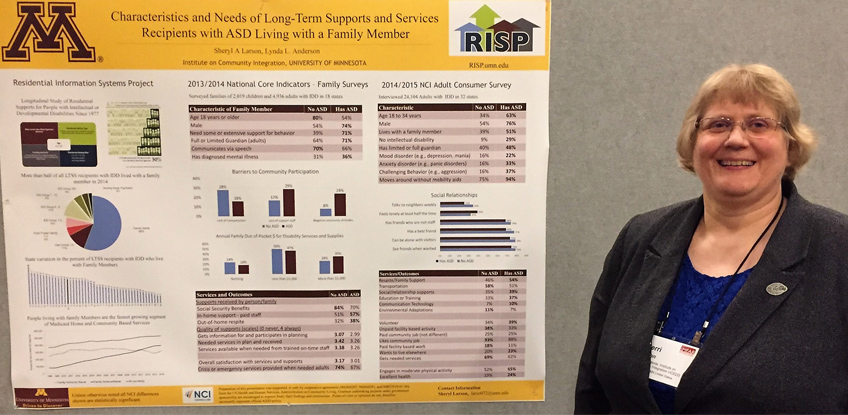
RISP and FISP director Sheryl A. Larson shared project data in multiple venues this year, including the International Meeting for Autism Research.
The Residential Information Systems Project (RISP) at ICI has gathered and reported vital information about the living arrangements of long-term supports and services (LTSS) recipients with intellectual and developmental disabilities (IDD) for over 30 years. The RISP data has been a highly-valued resource for legislative action at state and federal levels, research, advocacy, and policy.
Based at ICI’s Research and Training Center on Community Living (RTC-CL), RISP conducts annual national and state-by-state surveys of Medicaid-funded residential and in-home supports, long-term care, and related services for persons with IDD. Funded by the Administration on Intellectual and Developmental Disabilities in the Administration for Community Living, U.S. Department of Health and Human Services, RISP is a Project of National Significance. As such its work focuses on the most pressing issues affecting people with IDD and their families, and helps create and enhance opportunities for individuals with IDD to contribute to, and participate in, all facets of community life. “The longitudinal data we collect provides the context for understanding the progress we have made as a nation in supporting people with IDD to participate fully in all aspects of community life,” says project director Sheryl A. Larson .
In the past 30 years the locus of Medicaid-funded LTSS for people with IDD in the U.S. has increasingly shifted from large state-operated institutions to services provided to people living in their own homes, with family members or in another home and community-based setting. Acknowledging this shift, the Administration for Community Living funded an additional Data Project of National Significance at ICI to describe people living in homes of their own or with family members. The Supporting Individuals and Families Information Systems Project (FISP) began in October 2011 and concluded in September 2017. It was a partnership between ICI, the National Association of State Directors of Developmental Disabilities Services, and Human Services Research Institute. Through the combined efforts of RISP and FISP, researchers conducted special studies on supports for families, expanded the annual survey of state IDD directors to include more information about people living with family members or in their own homes, and created new digital data-sharing resources for families and family advocates, releasing their final joint report and presenting its findings around the country this past year.
